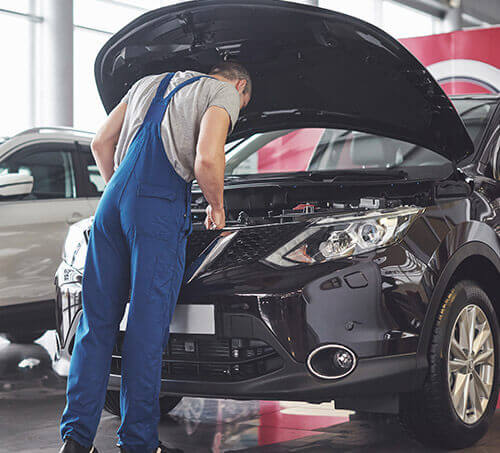When your transmission starts slipping, grinding, or refusing to shift, you’re left with a big decision: rebuild the existing transmission or replace it altogether. Here’s how to make the right choice for your vehicle, budget, and peace of mind.
Quick Answer
A rebuild is best if the housing and major components are solid, and if parts are readily available. For high-mileage or severely damaged transmissions, or in cases where parts are not readily available, replacement with a remanufactured unit offers reliability and potentially longer warranties.
What Does a Transmission Rebuild Involve?
- Disassembly: The transmission is removed and completely torn down.
- Inspection: Technicians check all internal parts—clutches, bands, gears, seals, bearings—for wear or damage.
- Replacement: Worn or broken parts are swapped for new or remanufactured ones. Additionally, upgraded parts that deal with known defects might be available.
- Reassembly & Testing: The transmission is reassembled with precision and tested for performance before reinstallation.
When Rebuilding Makes Sense
- Moderate Wear: If your transmission has worn clutches or seals but no severe damage, a rebuild can restore it to like-new performance.
- Lower Cost: Rebuilding typically costs less than replacing with a remanufactured unit.
- Keep Your Vehicle’s Original Parts: Rebuilding your own transmission retains original fitment, which can be important for older vehicles.
When Replacing Is the Better Option
- Severe Internal Damage: Cracked cases, stripped planetary gears, or major overheating usually call for replacement.
- High Mileage: Vehicles with over 150,000 miles may have enough wear across the system to justify replacing instead of piecemeal rebuilding.
- Parts Availability: In the case of older vehicles and some imports, parts necessary for rebuilding might not be readily available and require a replacement of the transmission.
- Better Warranty: Replacements (especially remanufactured units) sometimes come with longer warranties than a rebuild.
Cost Comparison: Rebuild vs. Replace
- Rebuild: $3,500–$7,500, depending on labor rates and extent of damage.
- Replace (Remanufactured or New): $3,500–$10,000 installed, depending on vehicle make and model.
Rebuilding can save money if your transmission is in decent shape. Replacing is sometimes a smarter long-term investment for heavily damaged or high-mileage vehicles.
Factors to Consider
- Vehicle Age & Use: Older vehicles you plan to keep long-term can often be rebuilt cost-effectively.
- Future Plans: If you plan to sell soon, a rebuild may be enough. If you’re keeping the car, replacement may offer better peace of mind.
- Warranty: Remanufactured or new transmissions sometimes have 3-year warranties, while rebuild warranties might be shorter.
FAQs: Rebuild vs. Replace Your Transmission
Q: How do I know if my transmission is too damaged to rebuild?
A: Severe damage such as cracked cases or major hard part failure may indicate that replacement is the best choice.
Q: How long does a rebuild take compared to a replacement?
A: Rebuilding usually takes 3–5 days, while replacement can be done in 1–3 days if parts are available.
Q: Will my rebuilt transmission be as good as a new one?
A: If done by a skilled shop using quality parts, a rebuild can perform like new. But for extreme wear or unknown damage, a replacement may be more reliable.
Q: Can I keep driving with a slipping transmission until I decide?
A: It’s risky. Driving with severe slipping can damage the transmission further and lead to more expensive repairs.
Q: Are there financing options for transmission work?
A: Many shops offer financing or payment plans for major repairs—always ask upfront.


 Free Customer Towing Service
Free Customer Towing Service  Free TrueTest™ Inspection
Free TrueTest™ Inspection  Fast Transmission Services
Fast Transmission Services  Comprehensive Warranty in Denver
Comprehensive Warranty in Denver 

























